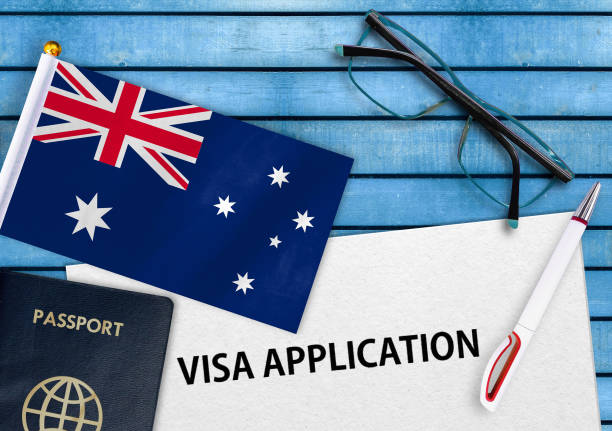Understanding Visa Types
When planning international travel, knowing the specific visa requirements is crucial as they vary by country and purpose of the visit. Here’s an exploration into the different types of visas.
Tourist Visas
Tourist visas are granted to individuals who plan to travel for leisure or sightseeing. These visas typically have a short validity period and do not permit the holder to work or engage in business activities. For example, the VisaGuide.World explains that these visas are mostly for short stays and cannot be used for other purposes.
Business Visas
These visas are designed for individuals who wish to engage in business-related activities such as meetings, conferences, or short-term training without entering the local labor market. According to Upgraded Points, requirements for business visas vary greatly from country to country.
Student Visas
Issued to those who have been accepted into a foreign educational institution, student visas are a requirement for anyone looking to study abroad. The visa allows students to remain in the country for the duration of their course. Travel with Thousif highlights the importance of timely application due to the generally longer processing times.
Work Visas
Work visas are necessary for individuals looking to take up employment or engage in business for an extended period in another country. This type of visa is often more complex to obtain, with stringent requirements including sponsorship from an employer in the destination country.
Transit Visas
Transit visas are required for travelers who are passing through a country to reach a final destination. These are typically short-term visas valid for a few hours or days, depending on the length of the layover.
Other Specialized Visas
There are various specialized visas for specific circumstances, including but not limited to, diplomatic visas for government officials, temporary protected status for those from certain troubled regions, and humanitarian visas. Information on these can be found through official government sources.
Visa Application Process
The Visa Application Process varies by country, but it generally involves establishing eligibility, gathering required documents, attending an interview if necessary, and understanding the processing times.
Eligibility Criteria
Eligibility for a visa depends on the applicant’s nationality, purpose of travel, and the destination country’s immigration laws. Some countries allow for a visa on arrival, while others require pre-approval through an embassy application. For instance, Schengen visas have a standardized set of eligibility criteria for tourist, business, or transit purposes that must be met by the applicant.
Application Documentation
Accurate and complete documentation is crucial for a successful visa application. This typically includes:
- A valid passport with a minimum of six months’ validity beyond the date of intended departure
- Completed visa application forms
- Passport-sized photographs
- Proof of financial means
- Travel itinerary details
- Supporting documents, such as invitation letters or employment verification
Depending on the visa type and the country’s specific requirements, additional documents may be necessary.
Visa Interview and Application Tips
Interview: Some visas demand an interview as part of the application process. Applicants should be prepared to answer questions regarding their travel plans, financial status, and ties to their home country.
Tips:
- Apply early to accommodate potential delays, as advised by Travel Tips Wiki.
- Read and follow the specific instructions from the destination country’s embassy or consulate.
- Ensure all information provided is consistent and truthful.
Visa Processing Times
Processing times can greatly vary, ranging from days to months. Factors affecting the duration include the visa type, the applicant’s nationality, the time of year, and the specific procedures of the embassy or consulate. Applicants should inquire about current processing times and consider them when planning their travel.
Country-Specific Visa Policies
Visa requirements vary significantly by country, necessitating travelers to understand and comply with the specific entry protocols of their destinations.
Schengen Area Requirements
The Schengen Area operates with a unified visa policy for 26 European countries, allowing for borderless travel between them. A Schengen visa grants a tourist or business visitor entry for up to 90 days within a 180-day period. Details and procedures can be reviewed on the Visa Policy Finder and Information.
United States Visa Policies
The United States requires most foreign visitors to obtain a visa across several categories, like B-1/B-2 for tourists and business purposes, respectively. However, countries under the Visa Waiver Program (VWP) are permitted to stay visa-free for up to 90 days, if they meet all requirements.
United Kingdom Visa Regulations
Accessing the UK hinges on factors such as the purpose of visit and the traveler’s nationality. The standard visitor visa is typically required for tourists, which allows a six-month stay. Detailed guidance is available, including visa types and application procedures on Visa Requirements by Country.
Visas for China and India
China and India have detailed visa frameworks catering to various travel intents, from tourism to business. Both countries require most foreign nationals to secure a visa in advance, with specifics varying by nationality and purpose of the visit. India offers an e-Visa for certain nationalities, streamlining the application process.
Regional Agreements and Differences
Regional agreements can influence visa processes. For example, the Gulf Cooperation Council allows member states’ citizens to travel freely among members. Conversely, countries like Russia have unique requirements, rarely falling under regional visa-free regimes. Reviewing these regional nuances is crucial before travel, which can be done through resources such as VisaGuide.World.
Frequently Asked Questions
This section answers common inquiries travelers have when preparing for international trips, focusing on visa requirements and procedures.
How can I determine if I need a visa for my travel destination?
One must check the entry requirements of the destination country in relation to their nationality. Information is often available on the destination country’s consulate or immigration website, such as the comprehensive guide to visa requirements by country which can provide up-to-date details.
What are the general requirements to obtain a travel visa?
Generally, obtaining a travel visa necessitates a valid passport, photos, financial proof, an itinerary, accommodations confirmation, and sometimes invitation letters. Specifics vary by country, but travelers can find detailed instructions on sites like VisaGuide.World.
Which countries offer visa-free entry or visa on arrival for U.S. citizens?
Many countries offer visa-free entry or visa on arrival options for U.S. citizens. A comprehensive list with each country’s specific requirements can usually be located on governmental websites or international travel guides.
What is the process for applying for a visa to another country?
The process typically involves making an embassy appointment, gathering necessary documents, and submitting an application. Embassies or official visa services outline the process, as seen on VisaGuide.World.
How do visa requirements vary for different nationalities?
Visa requirements can vary greatly based on one’s nationality due to diplomatic relations and reciprocal agreements. Comprehensive information for each nationality can be explored through the relevant consulate or specialized travel visa platforms.
Where can I find the most current visa prices and fees for various countries?
The most current visa prices and associated fees are usually listed on the official embassy or consulate websites for each respective country. Specialized visa requirement websites and platforms also regularly update their databases with such information.


